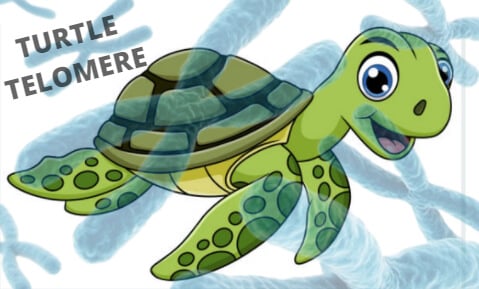The importance of telomeres and aging cannot be emphasized enough. Telomeres, the regions at the ends of chromosomes that shorten as we age, are a clear indicator of aging but have also been shown to quantify the biological damages of life and predict longevity. Two recent publications in this month of October illustrate the importance of telomeres.
Telomere Stress and Mothers With Chronically Ill Children:
Elizabeth Blackburn (Nobel Laureate, co-discover of telomerase) and Elissa Epel coauthored the first article in a commentary about telomere stress published in the journal Nature (Nature, October 2012, vol. 490 pp.169). The article reviews an earlier publication in which chronic psychological stress is linked to telomere shortening. In that study, telomeres of mothers of chronically ill children where compared to telomeres of mother of healthy children. After analyzing the blood samples of these two groups of mothers it was shown that chronically stressed mothers had shorter telomeres equivalent to a decade worth of aging.
Since the release of that breakthrough telomere stress study, other studies involving stress and telomere length measurements have been done and all supported this first finding. Studies supporting this finding involving children or elderly adults have all concluded that chronic stress leads to an accelerated telomere erosion. To no ones surprise, telomere stress and shortening was shown by other groups to lead to a higher incidence of disorders that are commonly associated with aging.
For instance in a ten year telomere stress study discussed, men and women who had their telomeres measured and had shorter telomere were three times more likely than those individuals with longer telomere to develop certain types of Cancers such as pancreatic Cancer. In conclusion, this article helps establish the notion that telomere length in addition to being a marker of aging, can work as a bellwether for psychological stress that predicts aging associated diseases.
 Mouse study finds fast telomere shortening compared to other species
Mouse study finds fast telomere shortening compared to other species
The second article provides evidence that telomeres can be used to predict longevity in mammals (Cell Reports, October 2012, vol. 2 pp. 1). In this study, the researchers help explain an odd observation involving mice and human cells. It is known that long telomere length is associated with better health and longevity. Yet mice have about 3-4 times longer telomeres that humans and nevertheless live for a fraction of the time as a human. To explain this conundrum, the researchers compared the RATE of telomere shortening in mice and compared it to humans.
They discovered that mouse telomeres, although considerably longer than humans, shortens ~100 times faster than humans. In other words, telomere length is important but we must also pay attention to lifestyle (less telomere stress) and environmental factors that can affect the rate of telomere shortening.
Mice with the slowest rate of telomere shortening accurately predicted longevity.








